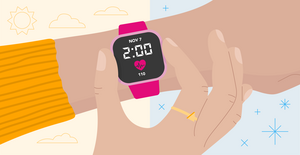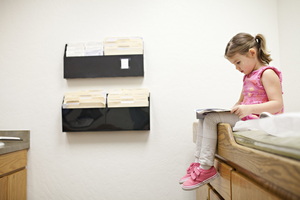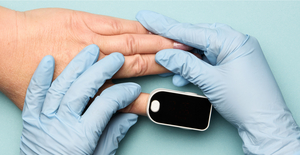Find TB testing in Chattahoochee Hills, GA
Own a clinic? Add your location.
Help patients book appointments with you on Solv. It's free!
20 instant-book locations

Atlanta Urgent Care, Peachtree Buckhead
Atlanta Urgent Care

American Family Care, Marietta
American Family Care

Atlanta Urgent Care, Druid Hills
Atlanta Urgent Care

AFC Urgent Care, Chamblee-Brookhaven
AFC Urgent Care

Quik Clinic, Marietta
Quik Clinic




Labcorp
Labcorp

Quest Diagnostics
Quest Diagnostics


Quest Diagnostics
Quest Diagnostics

Quest Diagnostics
Quest Diagnostics


Quest Diagnostics
Quest Diagnostics

Quest Diagnostics
Quest Diagnostics

Quest Diagnostics
Quest Diagnostics

Quest Diagnostics
Quest Diagnostics

Labcorp at Walgreens
Labcorp at Walgreens

Labcorp at Walgreens
Labcorp at Walgreens
Own a clinic? Add your location.
Help patients book appointments with you on Solv. It's free!
Getting tested for Tuberculosis
A tuberculosis test identifies whether or not you've ever been infected. It won't tell you whether your illness is current or latent, but it will tell you if you've had this bacterial infection before.
A tuberculosis test can be performed on the skin or in the blood. Neither test necessitates any extra preparation.
During the skin test, the TB test provider injects a small protein called PPD beneath the first layer of your skin. A positive reaction to PPD, which is generated from tuberculosis bacteria, can indicate that you have had tuberculosis. After 48 to 72 hours, the TB test provider will request that you return to the clinic so that the injection site may be thoroughly checked to confirm or rule out a positive result.
During the blood test, the TB test practitioner takes a small sample of blood from your arm with a tiny needle. Following that, your sample is sent to a lab for examination and determination of whether or not you have tuberculosis.
When you have TB symptoms, you should get a tuberculosis test. Fever, chest pain, exhaustion, night sweats, unexplained weight loss, a cough that lasts at least three weeks, and coughing up blood are all symptoms of tuberculosis.
A tuberculosis test may be ordered if you are deemed to be at high risk for tuberculosis. A weaker immune system, contact with people who have tuberculosis, or travel to a country where tuberculosis is common are all risk factors for tuberculosis. Furthermore, some employers, including healthcare facilities, correctional facilities, and people who work or volunteer at homeless shelters, require employees to receive tuberculosis tests on a regular basis.
TB Test FAQs
What does a positive TB test look like?
When you take the TB skin test, a huge bump will appear on your arm at the injection site if you have had a TB infection. This hump, which may appear red and bloated, indicates that you have tuberculosis germs in your body. During your visit, your doctor or the TB test provider will measure and check the bump to see if you have TB.
Where can I get a TB test in Chattahoochee Hills?
Tuberculosis tests are available from a variety of healthcare providers, including primary care physicians, hospitals, walk-in clinics and laboratories, pharmacies, and urgent care clinics. If you exhibit signs of active tuberculosis, your doctor may refer you to a tuberculosis testing facility. Solv can also help you locate the top TB testing facilities in your area.
What is a TB test?
tuberculosis testing available are a skin test and a blood test. A protein called PPD generated from tuberculosis germs is injected into your skin as part of the skin test to see how your body reacts to it. A small amount of blood is taken from your arm and submitted to a lab for confirmation of tuberculosis bacteria.
How long is a TB test good for?
You should have your tuberculosis test repeated every four years, whether you test positive or negative. Tuberculosis patients who test positive may be required to have a chest X-ray before being tested every four years. Your employer or doctor may prescribe a TB test more regularly than every four years based on specific work policies or your symptoms and health status.
How much does a TB test cost in Chattahoochee Hills?
A tuberculosis test's cost is determined by a number of factors, including the test's kind, provider rates, geographic location, and whether or not the test is covered by your health insurance plan. Contact each TB test provider directly to find more about price and rates, or contact your health insurance company to learn more about your TB testing benefits and coverage.
Does insurance cover TB testing in Chattahoochee Hills?
Many health insurance coverage includes tuberculosis testing, particularly if your doctor believes it is medically necessary based on your symptoms or level of contact with tuberculosis patients. Some companies may reimburse the cost of tuberculosis testing if it is required at work. Contact your health insurance provider directly to learn more about your TB test benefits and coverage.
How often do you need a TB test in Chattahoochee Hills?
Employers often screen employees who are required to get tested for tuberculosis every four years. If you spend time with someone who has tuberculosis or have traveled to a region where tuberculosis is common and prevalent, such as Africa or Russia, your doctor may prescribe that you get a TB test on a regular basis. Ask your employer or doctor how often you should get a TB test based on these factors.
How long does a TB test take in Chattahoochee Hills?
The TB blood test usually takes less than five minutes because it involves taking a small sample of blood from your arm. The TB skin test is also quick, but you'll need to come back to the clinic 48 to 72 hours later to have the injection site checked for a reaction. When you call to schedule a tuberculosis test, the provider will be able to give you a more exact time estimate.
How can I book a TB test through Solv?
A TB test can be scheduled easily and quickly with Solv. Go to the Solv Home page, type "TB test" into the search box, and then select your area from the right-hand dropdown menu. Solv will present you with a selection of top-rated tuberculosis (TB) test providers in your area who can assist you. Choose your favorite tuberculosis test provider and contact them using the information provided to make an appointment.
Can I do at-home TB testing in Chattahoochee Hills?
Test kits for tuberculosis that can be used at home are no longer available. Some healthcare providers, on the other hand, may visit your home to give a tuberculosis test, albeit this service may be limited to persons who are unable to leave their homes due to physical limitations. If you or a family member is unable to leave the house to take the test, speak with your doctor about the possibility of at-home TB testing.

Updated on Dec 25, 2025
Solv has strict sourcing guidelines and relies on peer-reviewed studies, academic research institutions, and medical associations. We avoid using tertiary references.
Related Searches
DOT Exam in Chattahoochee Hills
Ear Wax Removal in Chattahoochee Hills
Sports Physicals in Chattahoochee Hills
A1C Test in Chattahoochee Hills
Allergy Testing in Chattahoochee Hills
Basic Metabolic Panel in Chattahoochee Hills
CMP Test in Chattahoochee Hills
Diabetes Test in Chattahoochee Hills
Diagnostic Test in Chattahoochee Hills
Flu Test in Chattahoochee Hills
H Pylori Test in Chattahoochee Hills
Hepatitis test in Chattahoochee Hills
Lab Tests in Chattahoochee Hills
Mono Test in Chattahoochee Hills
Pregnancy Test in Chattahoochee Hills
RSV Test in Chattahoochee Hills
STD Testing in Chattahoochee Hills
Strep Test in Chattahoochee Hills
TB Test in Chattahoochee Hills
Thyroid Test in Chattahoochee Hills
Vitamin D Test in Chattahoochee Hills
Aetna Urgent Care
Blue Cross Blue Shield Urgent Care
Cigna Urgent Care
COVID-19
Flu
United Health Urgent Care
» All services in Chattahoochee HillsFind TB test
Nearby cities
Everyday Healthcare, Simplified
Expert advice to help you live your best life







